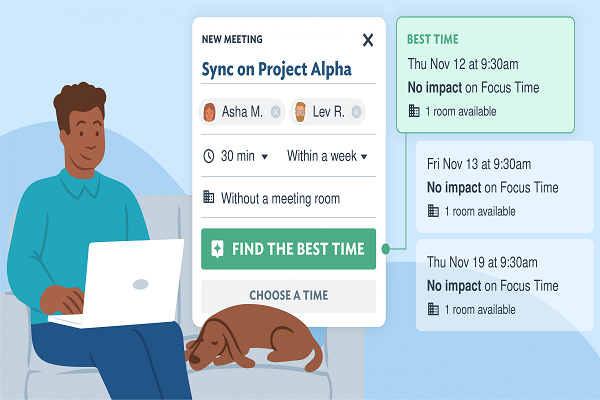In today's fast-paced world, time management and productivity have become crucial skills for success. With numerous tasks, appointments, and deadlines to juggle, staying organized can be challenging.
Thankfully, the rise of digital technologies has paved the way for innovative solutions, including the emergence of scheduler assistants. These intelligent virtual helpers have revolutionized the way we schedule and manage our time. In this article, we will explore the evolution of scheduler assistants and how they can enhance your productivity.
1. The Rise of Digital Schedulers:
In the past, scheduling tasks often involved manual efforts, such as maintaining paper calendars or relying on personal memory. However, the advent of digital schedulers transformed the landscape. Early scheduling applications allowed users to input appointments, set reminders, and synchronize data across multiple devices. While these tools were helpful, they required active user input and lacked the ability to adapt to changing circumstances.
2. Introducing the Scheduler Assistant:
Enter the scheduler assistant—an AI-powered solution designed to streamline scheduling processes. These assistants are equipped with natural language processing (NLP) capabilities, enabling them to understand and respond to user instructions effectively. Through integration with various platforms, such as calendars, email clients, and task management systems, they can gather relevant information and provide intelligent recommendations.
3. Personalized Time Management:
One of the key advantages of a scheduler assistant is its ability to personalize time management. By analyzing your past scheduling patterns, preferences, and priorities, the assistant can suggest optimal time slots for tasks and appointments. Moreover, it can take into account external factors like traffic conditions, weather, and availability of participants to propose the most efficient scheduling options.
4. Automated Reminders and Notifications:
Missing important appointments or deadlines can be detrimental. Scheduler assistants tackle this issue by sending automated reminders and notifications. Whether it's a forthcoming meeting, a pending task, or a deadline, these assistants ensure you stay on top of your commitments. Some advanced assistants can even learn your response patterns and adjust their reminders accordingly, maximizing your chances of meeting your obligations.
5. Streamlining Meeting Scheduling:
Coordinating meetings among multiple participants can be a time-consuming process. Scheduler assistants simplify this task by eliminating the back-and-forth communication typically involved in finding a suitable time for everyone. They can analyze participants' availability, propose potential meeting slots, and send out invitations automatically. This streamlines the scheduling process, reduces the administrative burden, and increases efficiency.
6. Integration with Smart Devices:
As smart devices continue to dominate our lives, scheduler assistants have evolved to integrate seamlessly with these platforms. Whether it's a voice-controlled speaker, a smartwatch, or a smartphone, these assistants can be accessed through a range of devices, ensuring constant connectivity and instant scheduling capabilities. This allows for greater flexibility and accessibility, empowering users to manage their time from anywhere, at any time.
Benefits of Scheduler Assistant
A scheduler assistant can be incredibly beneficial for individuals or businesses in several ways. Some of the benefits include:
1. Time management: A scheduler assistant can help manage your time more efficiently by scheduling appointments, meetings, and other events for you. This allows you to focus on other important tasks and ensures that you do not double-book or miss any appointments.
2. Increased productivity: By managing your schedule, a scheduler assistant can help increase your productivity by ensuring that you have adequate time to complete your work and meet your deadlines.
3. Improved communication: A scheduler assistant can help improve communication by ensuring that everyone is on the same page regarding scheduled appointments and meetings. This can help reduce misunderstandings and ensure that everyone is informed.
4. Reduced stress: By taking care of scheduling and managing your calendar, a scheduler assistant can help reduce stress and anxiety associated with time management.
5. Customized service: A scheduler assistant can provide customized service tailored to your specific needs and preferences. This can include setting reminders, prioritizing appointments, and providing scheduling recommendations.
The scheduler assistant represents a significant step forward in enhancing productivity and time management. With their intelligent algorithms, personalization features, and seamless integration with various platforms, these assistants have become indispensable tools for individuals and businesses alike. By automating mundane scheduling tasks and providing intelligent recommendations, they free up valuable time and allow users to focus on more critical activities. As technology continues to advance, we can expect scheduler assistants to become
